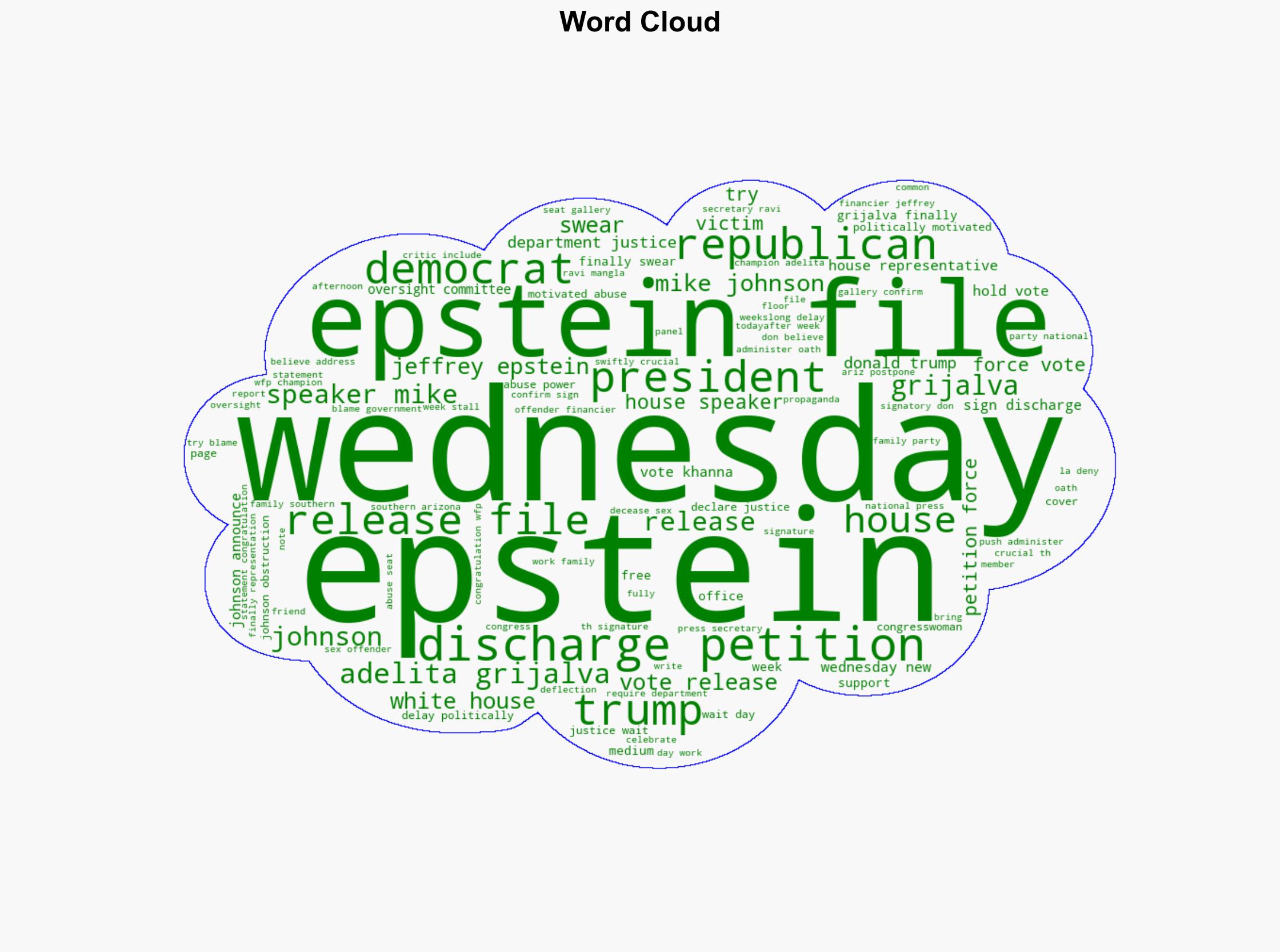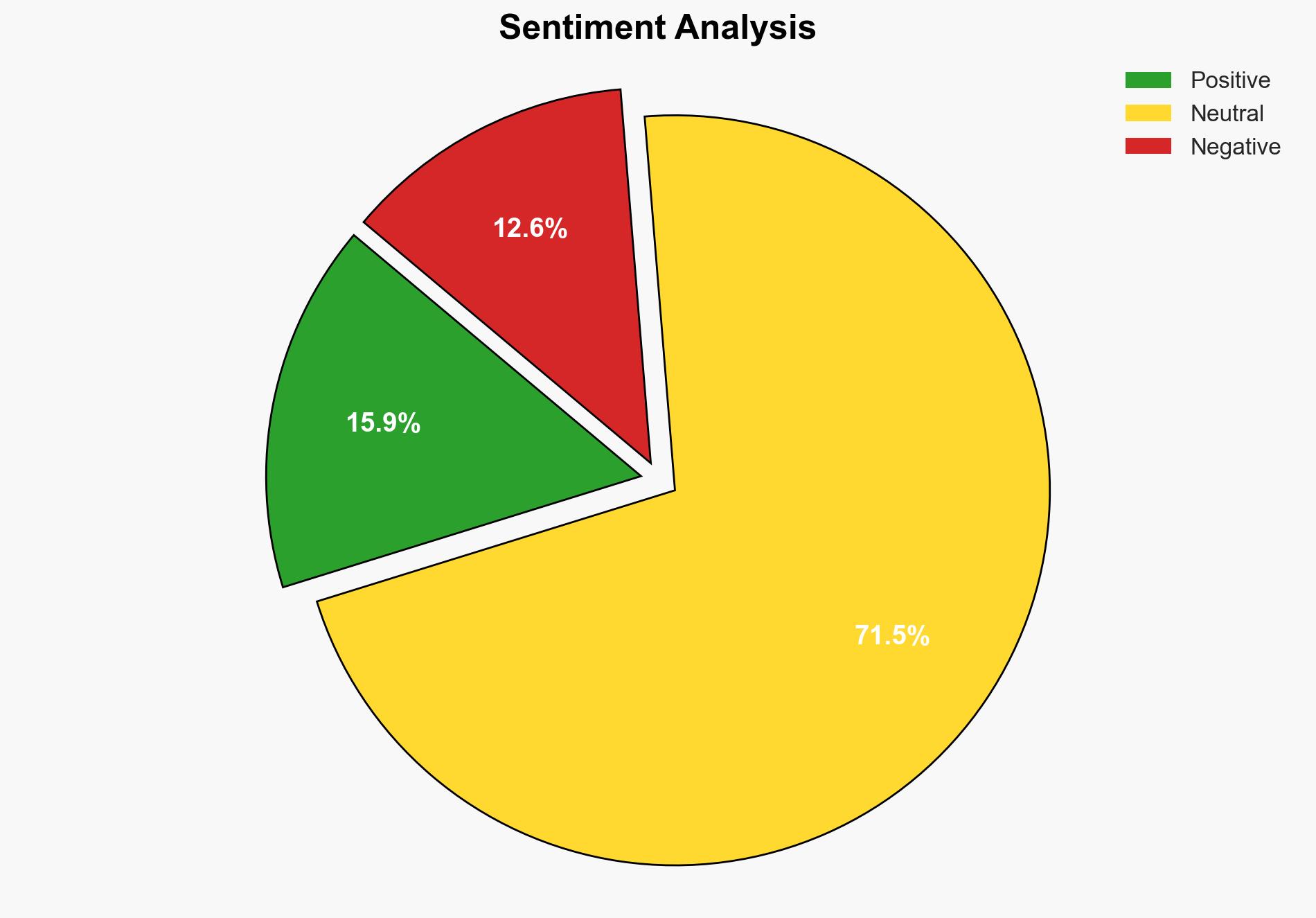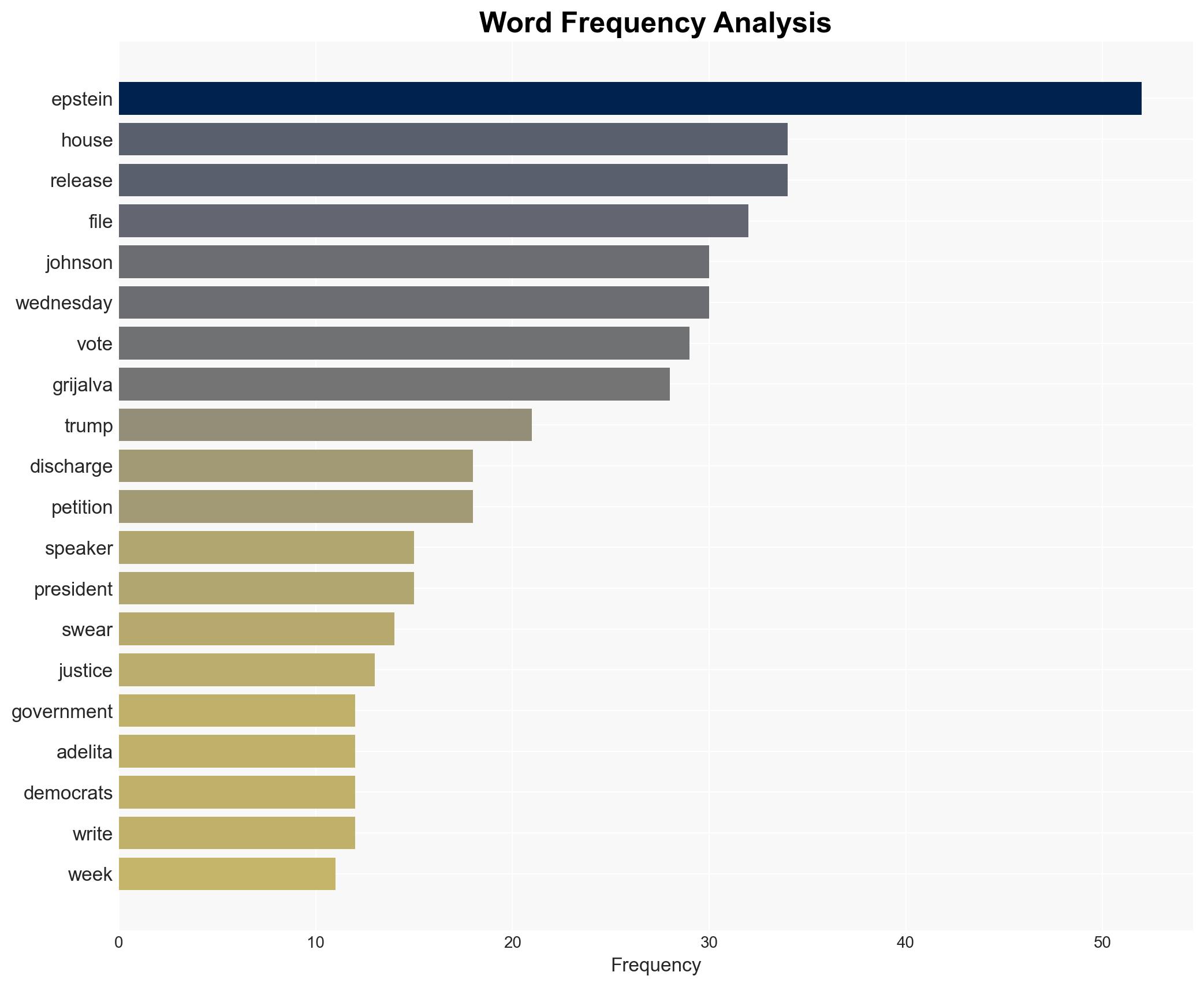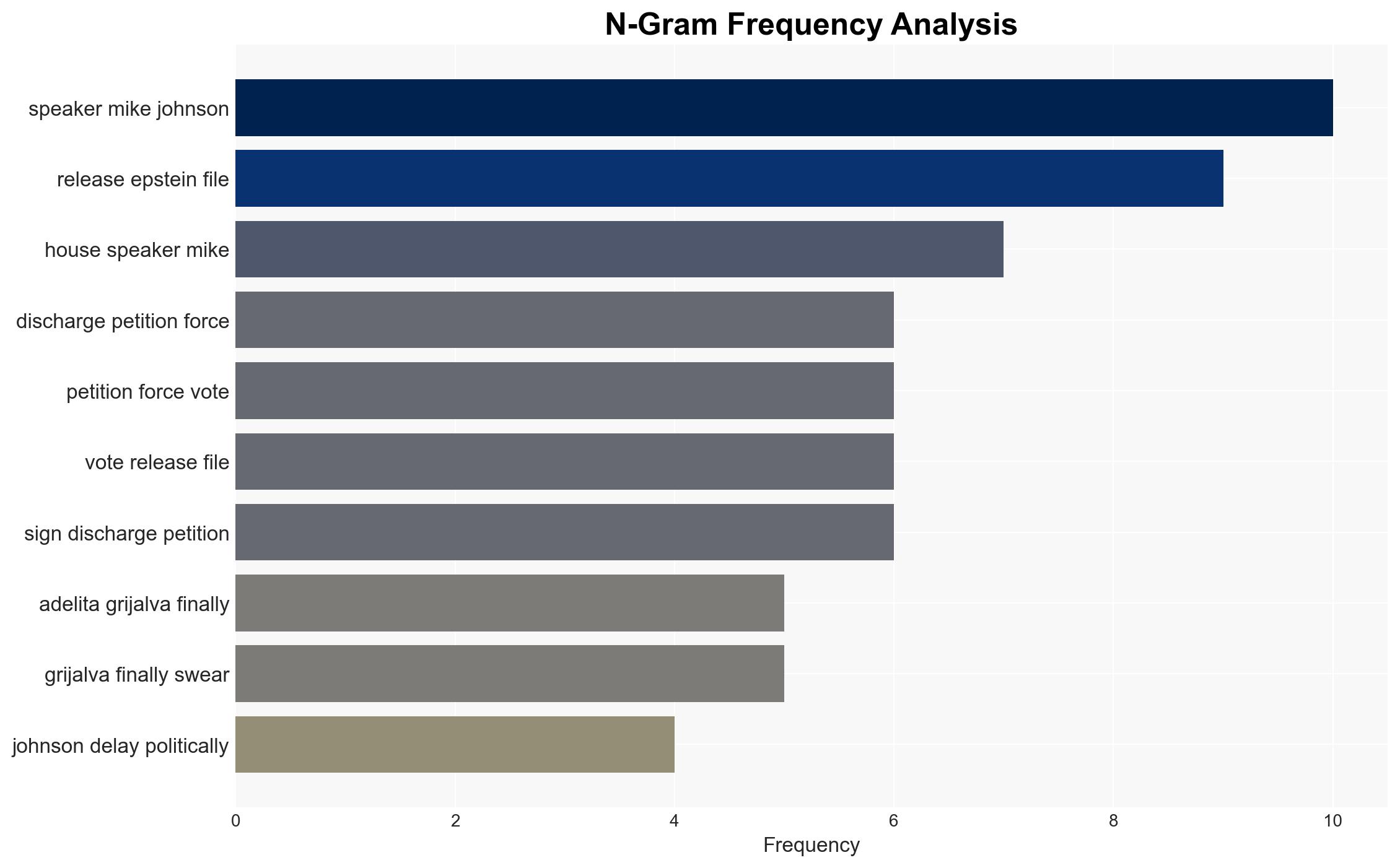Grijalva Signs Discharge Petition to Force Epstein Files Vote Right After Being Sworn In – Common Dreams
Published on: 2025-11-13
AI-powered OSINT brief from verified open sources. Automated NLP signal extraction with human verification. See our Methodology and Why WorldWideWatchers.
Intelligence Report: Grijalva Signs Discharge Petition to Force Epstein Files Vote Right After Being Sworn In – Common Dreams
1. BLUF (Bottom Line Up Front)
With a moderate confidence level, the most supported hypothesis is that the discharge petition is primarily a strategic move by Congresswoman Grijalva and her allies to increase transparency and accountability regarding Jeffrey Epstein’s connections. This action could pressure political figures and potentially reveal sensitive international ties. Recommended actions include monitoring the political fallout and preparing for potential diplomatic repercussions.
2. Competing Hypotheses
Hypothesis 1: The discharge petition is a genuine effort to promote transparency and justice for Epstein’s victims, driven by bipartisan support and public demand.
Hypothesis 2: The petition is a politically motivated maneuver aimed at discrediting political opponents, particularly those with alleged connections to Epstein, and is being used as a tool for political leverage.
Hypothesis 1 is more likely given the bipartisan nature of the support and the public statements emphasizing justice and accountability. However, Hypothesis 2 cannot be entirely dismissed due to the potential political gains involved.
3. Key Assumptions and Red Flags
Assumptions: It is assumed that the release of Epstein’s files will lead to significant revelations about political and international figures. It is also assumed that the bipartisan support is genuine and not solely for political gain.
Red Flags: The timing of the petition right after Grijalva’s swearing-in could indicate a premeditated political strategy. The involvement of high-profile political figures suggests potential bias and manipulation of the narrative.
4. Implications and Strategic Risks
The release of Epstein’s files could lead to political destabilization if prominent figures are implicated. International relations might be strained if foreign leaders are involved. There is also a risk of misinformation campaigns and cyber threats aimed at influencing public perception and political outcomes.
5. Recommendations and Outlook
- Monitor the political landscape for shifts in alliances and potential retaliatory actions by those implicated.
- Prepare for potential diplomatic fallout and develop strategies to manage international relations if foreign leaders are named.
- Best-case scenario: The files are released, leading to increased transparency and justice for victims without significant political or diplomatic repercussions.
- Worst-case scenario: The release leads to major political scandals, destabilization, and strained international relations.
- Most-likely scenario: The files are released with some political fallout, but managed through strategic communication and diplomacy.
6. Key Individuals and Entities
Adelita Grijalva, Mike Johnson, Ravi Mangla, Cavan Kharrazian, Ro Khanna, Thomas Massie, Lauren Boebert, Nancy Mace, Marjorie Taylor Greene, Donald Trump.
7. Thematic Tags
National Security Threats, Political Transparency, International Relations, Political Strategy
Structured Analytic Techniques Applied
- Cognitive Bias Stress Test: Expose and correct potential biases in assessments through red-teaming and structured challenge.
- Bayesian Scenario Modeling: Use probabilistic forecasting for conflict trajectories or escalation likelihood.
- Network Influence Mapping: Map relationships between state and non-state actors for impact estimation.
Explore more:
National Security Threats Briefs ·
Daily Summary ·
Methodology





